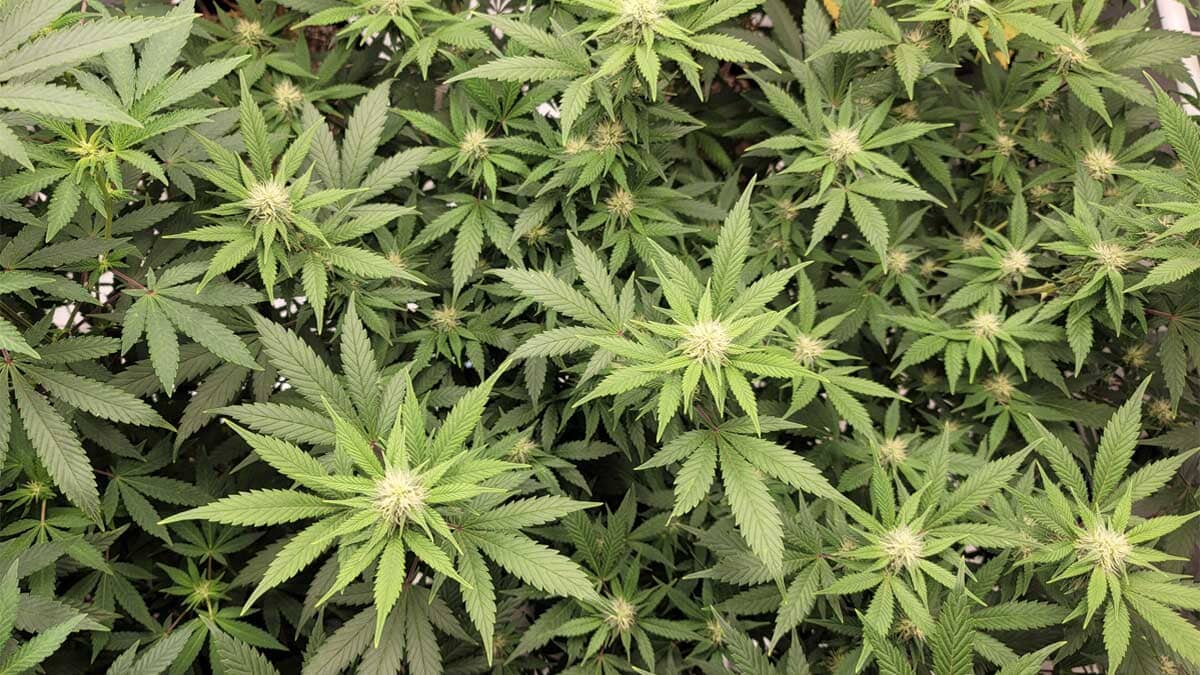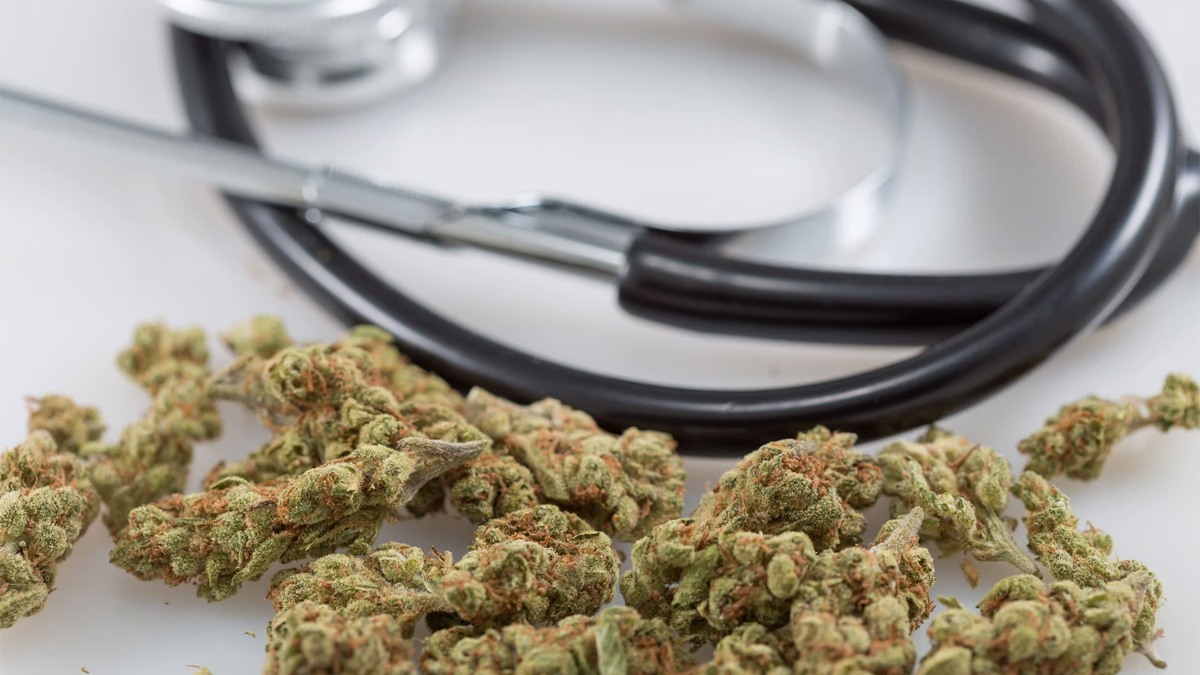
Photo courtesy of Mike Latimer.
At least 20 cannabis-related bills have been introduced in Texas for the legislative session that officially kicked off last month, including proposals to legalize adult-use marijuana, prohibit certain hemp-derived products, remove criminal penalties for cannabis possession and adjust the state’s existing medical marijuana laws, among others.
With a filing deadline of March 14, even more bills could materialize.
The state legislature in Texas comes together only once every two years, meaning reforms that don’t pass by the session’s close on June 2 can’t be considered again until 2027.
Heather Fazio, director of the Texas Cannabis Policy Center, which is trackingthe measures introduced so far, told Marijuana Moment that she’s watching several of the bills particularly closely.
Among them is HB 1790, a statewide decriminalization measure from Rep. John Bucy III (D) that would remove criminal penalties for possession of up to an ounce of marijuana—conduct that’s currently a Class B misdemeanor, punishable by up to 180 days in jail and a $2,000 fine.
Another bill from Bucy, HB 1797, would provide protections for public workers who use medical marijuana or hemp, prohibiting state agencies and other jurisdictions from asking about or testing employees or contractors for cannabinoids as a condition of getting or keeping a job. The protections would not apply to law enforcement and Department of Transportation-regulated workers.
Nearly a dozen bills filed so far relate to medical marijuana and aim to adjust the state’s low-THC medical cannabis program or enact other changes related to medical use.
“Of the 20 cannabis bills that have been introduced, half are focused on medical cannabis,” Fazio said. “Proposals include medical cannabis research, patient protections, and improving the Texas Compassionate Use Program.”
Among those bills is HB 1146, from Rep. Penny Morales Shaw (D), which would expand qualifying conditions by allowing patients to access the state’s low-THC medical marijuana to treat “a condition that causes chronic pain, for which a physician would otherwise prescribe an opioid.”
Another, HJR 70, a joint resolution from Rep. Ron Reynolds (D), calls for a constitutional amendment that if approved by voters would direct the legislature to “authorize and regulate the possession, cultivation, and sale of cannabis for medical use in this state.”
Other medical bills include SB 170, from Sen. José Menéndez (D), which would effectively expand the state’s low-THC medical cannabis system into one more resembling programs in other legal states, replacing references in state law to “low-THC cannabis” with “medical cannabis.” It would also add new sections on product testing, packaging and labeling, retail locations across the state, caregivers and other details of the expanded program.
SB 259, from Sen. Carol Alvarado (D), would also expand the state medical program. That bill appears to be based on a prior measure that Alvarado introduced in 2020 and said at the time would “expand the use of medical marijuana by allowing doctors & science to dictate what conditions & symptoms are eligible for a prescription.”
“Top of everyone’s mind, though, are bills to shut down the hemp industry as we know it,” Fazio explained, pointing to proposals such as HB 2155 and SB 3, which would ban many hemp-derived cannabinoids.
(Disclosure: Fazio supports Marijuana Moment’s work through a monthly Patreon pledge.)
HB 2155, from Rep. Matt Shaheen (R), would ban the sale of all consumable hemp products, including CBD, whether sold in person or delivered through mail. Selling, transferring or delivering hemp products would be a Class B misdemeanor, though the measure would not outlaw possession of such products.
Additionally, Shaheen’s bill would redefine “smoking” to include vape products.
Lt. Gov. Dan Patrick (R) and Sen. Charles Perry (R) have similarly pledged to pursue a ban on hemp cannabinoids, such as forms of THC, through the bill SB 3. The text of that bill, however, has not yet been released.
Patrick last year directed a Senate committee last year to examine issues around beverages containing THC and prepare legislation that would ban the sale of intoxicating hemp products.
“Instead of reverting to prohibition, our state would be better served by an effective regulatory framework for these products,” Fazio said.
Other state officials, meanwhile, have called for a more comprehensive approach to cannabis reform.
Earlier this year, Agriculture Commissioner Sid Miller (R) wrote an op-ed urging the state to both restrict intoxicating hemp products and expand its existing medical marijuana program to give access to more patients, writing: “Everyone who can benefit from it to help with their legitimate medical condition should have it available to them.”
Miller said that he doesn’t personally support adult-use marijuana legalization but argued it would still be preferable to the current situation.
“Even if the legislature voted to legalize recreational marijuana tomorrow,” he said, “that legislation would create a legal market with rules, guardrails, checks and balances. What we have now is the wild west.”
Fazio sees the window to regulate hemp as an opportunity—one that the legislature may miss if it doesn’t take action this session.
“Will lawmakers lean into this opportunity to regulate cannabis,” she asked, “or will they kick the can down the road…again?”
Other bills on the the hemp side introduced for the current session include HB 1113, from Rep. Briscoe Cain (R), which would tighten regulations on hemp research and production in the state. Among other changes, it would establish a permit that would be required of hemp researchers and create a criminal offense for cultivating hemp without a license. The crime on first offense would be a Class C misdemeanor, which would climb to Class B and Class A misdemeanors on second and subsequent offenses.
A separate Senate bill to regulate hemp products, SB 1103, from Sen. Judith Zaffirini (D) would prohibit consumable hemp products that are marketed, packaged, flavored or colored “to appear similar to a candy or beverage product.” Selling, distributing or intending to distribute such products would be a second-degree felony, on par with certain violent crimes and punishable by two to 20 years behind bars and a fine of up to $10,000.
Legislative leaders recently appointed lawmakers to various committees, setting up the bills for consideration.
“Now that committees have been appointed, we’ll begin to see bills scheduled for hearings,” said Fazio at the Texas Cannabis Policy Center.
As for Patrick’s opposition to intoxicating hemp-derived cannabinoids, the lieutenant governor recently emphasized a survey result showing that more than half (55 percent) of Texans want the state to rein its largely unregulated market for hemp-derived THC. But he simultaneously ignored the survey’s other findings: that even more Texans want the state to legalize and regulate marijuana for both medical and adult use.
The polling, from the University of Houston’s Hobby School of Public Affairs, found that nearly 4 in 5 (79 percent) Texans support legalizing the sale and use of medical marijuana with a doctor’s recommendation, while more than 3 in 5 (62 percent) support legalizing and regulating an adult-use cannabis market.
Almost 7 in 10 (69 percent), meanwhile, said they think the state should decriminalize marijuana for personal use.
There is bipartisan support in the survey for each of the reforms.
What Patrick’s comments got right is that most Texans think laws around cannabis need to change: Only 22 percent of those surveyed favored keeping the state’s marijuana laws as they are.
Patrick has targeted hemp-derived THC repeatedly during his time in office, most recently by including legislation that would ban the products in his list of priority bills. And he endorsed past legislation that would ban all forms of consumable THC in the state.
At the local level, meanwhile, numerous Texas cities have enacted local decriminalization laws in recent years—most recently Dallas, Lockhart and Bastrop. Late last year, Attorney General Ken Paxton (R) filed a lawsuit seeking to overturn the Dallas effort, following up on similar suits against other jurisdictions, such as Austin, San Marcos, Killeen, Elgin and Denton.
State district judges dismissed two of the lawsuits—which argue that state law prohibiting marijuana preempts the local policies—in Austin and San Marcos. The city of Elgin reached a settlement, with the local government pointing out that decriminalization was never implemented there despite voter approval of the initiative.
Photo courtesy of Mike Latimer.
Ben Adlin via (https://www.marijuanamoment.net/texas-lawmakers-are-considering-nearly-two-dozen-marijuana-and-hemp-bills-this-legislative-session/)
Keep out of reach of children. For use only by adults 21 years of age and older.










